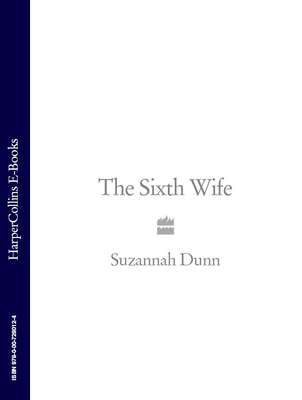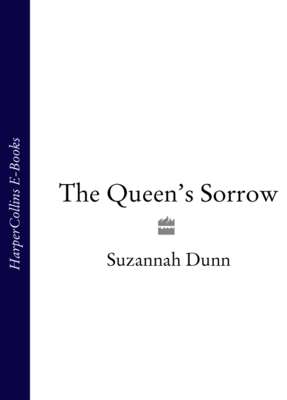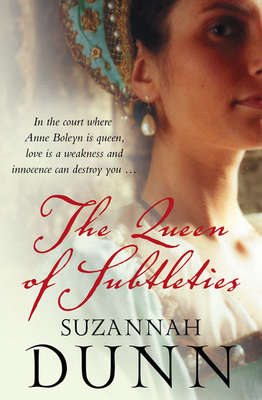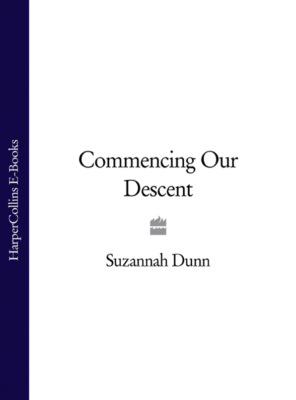Kitabı oku: «Tenterhooks»
SUZANNAH DUNN
Tenterhooks

PRAISE
BLOOD SUGAR
‘Blood Sugar is lit up by images of rare vitality and beauty.’
MAGGIE GEE
‘Suzannah Dunn is that rarity among contemporary novelists: a genuine stylist. Her prose is like truffles – rich, rare, dark, but never cloying.
WENDY PERRIAM
‘Suzannah Dunn is a writer with a brilliant touch.’
MALCOLM BRADBURY
PAST CARING
‘Poignant and believable… Past Caring is a perceptive novel by a writer who skilfully blends the everyday with the fantastic.’
HELEN DUNMORE
‘Suzannah Dunn writes in loaded and knowing prose, like a hip Edna O’Brien or Muriel Spark.
Glasgow Herald
‘Suzannah Dunn is a gifted writer.’
POLLY TOYNBEE, The Times
QUITE CONTRARY
‘The writing is loaded with vibrant, visual images of so strongly evocative, so poetic a quality that they seem about to burst and to yield up a weight of hidden meaning.’
Literary Review
‘A compelling debut novel from a writer steadily gathering critical plaudits for her penetrative eye and unfussy style… a luminous, honest and haunting portrait of a single woman doing a demanding job and trying to stay alive inside as well.’
Scotland on Sunday
‘A brilliant portrayal of a young woman coming to terms with her past and present.’
Company
VENUS FLARING
‘The prose is precise, images bloom like bruises or blood drops… compact worlds are contained in the simplest of descriptions. Dunn is a surgeon of the heart, and her observations are sparky’.
EITHNE FARRY, Time Out
‘A writer with a subversive wit that few of her peers can match.’
JONATHAN COE
‘Venus Flaring treats familiar themes to a witty and original overhaul. Dunn marries plot and themes, to create a haunting, melancholy tone perfectly suited to the sense of loss which afflicts even minor characters.’
ALISON WOODHOUSE, TLS
‘After reading Venus Flaring no other book will strike quite so close to your soul… Dunn time after time stuns the reader. This is a vital, refreshing, terrifyingly brilliant novel that demands to be read’.
SUSANNA GLASER, Finetime
DEDICATION
With love and thanks to my editor,
Charlotte Windsor
CONTENTS
Cover
Title Page
Praise
Dedication
1 White Goods
2 Sync
3 Tie-Breaker
4 Night Flight
5 Possibility Of Electricity
6 Guts For Garters
7 Slipping the Clutch
8 A Good Airing
9 Stood Up and Thinking of England
10 Don’t Touch It, Don’t Ignore It, Stay Calm
Keep Reading
About the Author
Copyright
About the Publisher
I WHITE GOODS
As we walked down the aisle, he murmured, ‘Spinach …’
I stopped, leaned over and looked down onto the frozen vegetables. During the two days since the delivery of our freezer I had had numerous fantasies, but none about spinach. Sara Lee, yes; spinach, no. And now Christie was beginning with spinach? I dipped down into the fizzy chill to scratch my way to greenery; packs of carrots and sweetcorn hissed as they slipped over one another. Spinach? I called up. ‘Are you sure?’ By comparison, the sweetcorn looked glamorous.
Above me, behind me, he laughed, ‘Never been more sure.’
But I tried, ‘Broccoli florets?’ Because florets sounded faintly enticing.
‘Deceptive.’
I surfaced, enquiringly.
‘Thaws to rubber,’ he explained.
‘How do you know?’
He shrugged, more than necessary, both hands off the moving trolley, Look, Mum, no hands. ‘I just do. Cauliflower, too. Anything that’s not spinach.’ A twitch of a smile. ‘Which is why I said spinach.’ Then he said, ‘I noticed the mound of Mars Bars,’ and managed more of the smile.
Those Mars Bars would have been hard to miss: the only contents, so far, of the freezer. ‘A girl needs her luxuries.’
His eyes dropped wider: he is the only person whom I know who has eyes like trap doors. He said, ‘And I was so sure that it was greens that a girl needed.’
I returned to the matter of the frozen spinach, which, I found, existed in two forms: solid blocks, the size of paperback books; or pellets, packed loosely into cushion-sized bags. A block would be slow to thaw, and then would swamp us in spinach: a problem to which there is no solution (spinach sandwiches?). I had never had a freezer, but I knew the rule, I knew never to refreeze: everyone knows that to thaw food is to disturb the undead. I reached down into the freezer. Although they were impractical, I liked the feel of the solid blocks, but they were made of leaf spinach: a leaf which is not in fact a leaf but a length of vivid green silk to make bobbins of our front teeth. I turned my attention to the pellets: chopped spinach, which I recognized as a euphemism for minced. Silently vowing that spinach was the only minced vegetable that I would allow before my ninetieth birthday, I hauled a pack from the icy-fluffy depths.
Three weeks later, three weekly shopping trips later, and our frozen food supply is three feet deep. On several occasions we have filled a saucepan with those frosted pellets of moss, and hey presto … Hey presto, thawed spinach. But Christie thinks of something, he always thinks of something, he saves the day with a curry or a lasagne. By contrast, I am quick to despair. In my hands, thawed spinach remains thawed spinach, becomes nothing better than warm spinach. The freezer has not made a cook of me. But Christie can cook, and now our lives have become like other people’s lives, with proper meals, like clockwork. Our freezer needs feeding, but this is fun: we drive to a hangar of a supermarket, spin a trolley around stacks of food, pick up whatever we fancy and then pay by card, which is not like paying at all. And the freezer more than repays us: a lift of the lid to find the fruits of our labours. I have heard that the hitch is a loss of flavour over time, but I am sure that I can live with that.
But now I have to do something because the food is thawing below me in the kitchen, slowly losing its lifeblood of ice as I float warm here in my bed. A moment ago, opening my eyes, I turned to my clock to find that the digital display was wholly black – hollow. I ran my hand down the wall for the switch for my lamp; the switch snapped down but seemed to fall short – nothing, no power. We are deep into the night: the moon is high, shrunk to a pearl; the silence is as thorough as new, heavy snow. I am softened by sleep and can only wait for my clock to open its green eyes, to show me how the power cut is merely a momentary failure, a flicker, a mistake. But nothing. There is nothing that I can do to fix this. Time for damage limitation: I will have to leave my bed and go downstairs with blankets for the freezer.
Slipping over the mattress, I try to keep the duvet level, to avoid any pull on Christie. As soon as I am clear, I pause to listen hard for him, for his silence. In two minutes’ time, I will be back here and turning back into my own sleep, gathering up the remainder of my sleep to see me through to morning. I do not even bother with my dressing gown. How odd that we close our door although there is no one else in the house to keep us from, to keep from us. The opening door cracks into the hush of our room. But still nothing from Christie. I cannot see his face, only the top of his head, his hair: he is hunched into the duvet. Out there in the hallway the moonshine is pooled on the top few stairs. Pulling hard on the airing cupboard door, I tense for the snap of the plastic nub from its socket in the frame. When I was a child, my parents had special uses for the airing cupboard: a treasure trove for our birthday and Christmas presents, and a nest for the incubation of our slightly mushy Easter eggs. A winter holiday home, too, for my tortoise; the place where, every year, very slowly, he died, sort of, then sort of came alive again.
Nowadays I have friends who are diligent about bulbs: they plant bulbs in bowls, plant the bowls in their airing cupboards, and then they wait, all winter. But I am suspicious of shoots, stiff and pallid; they do not seem natural, somehow, not in an airing cupboard. My own warm shelves, in front of me, are slopped with underwear: straps, frills, bows, mostly washing powder white, nothing flash, because when I was young enough for experiments with underwear, I was too poor, and then, later, when I had money, I had lost my nerve, I had grown up. And I have never caught up: underwear remains a language that I do not speak well, in which I am untidy and tight-lipped. I get by, with a rather teen-bra look.
The blankets are on the top shelf, so my hands flutter over the underwear and then scale several shelves of towels. Warm, even smelling warm, these towels have a very thin crust, they are slightly dried and hardened from laundering. They came in batches as house-warming presents from relatives, who, I suspect, had asked the advice of my parents; and here they are, in the centre of my house, still warm, still warming. When they came, I took my old towels to a charity shop. My old towels had been very old. But then these new towels began to unnerve me. They had come in kindness, a kind of kindness, because my family knew that I had always had to make do, but I worried that they were a conspiracy to turn me normal, to turn my head and make me houseproud. I remember my dad saying, All I want is to see you married. My mum is the only person whom I know to use the word slattern. Once, she referred to a local girl who had lived with and then left her boyfriend as soiled goods. My bed linen is my own because my relatives were unsure whether they should buy anything for the bed of two unmarried people. I was happy to buy my own: I caught up on bed linen in a big way, in my belief that bed linen should be linen. No cotton/polyester mixes. Why was I so serious about this, when my underwear remains the equivalent of flannelette fitted sheets?
The blankets drop one by one from the shelf, their folds wriggling from my arms. I strain behind my bundle to kick the cupboard door shut, then waddle to the stairs. The towels, fattening and breathing their fragrance into my airing cupboard, those house-warming towels makes me think of my sister. Belinda was married, but I do not know what she is now: single, divorced, separated, or simply sulking? She was married for nine months and has now been back home for six. Like a character from a book or a film, a character from the Deep South. Except that she wears Snoopy slippers, and has never lived anywhere but Hatfield. I was told that the marriage didn’t work, as if it was a dud among the many electrical appliances that had come gift-wrapped to the wedding reception. Mum says that Belinda doesn’t-want-to-talk-about-it. If I was Belinda, I would not even want to think about it: Freddie was her first boyfriend, when she was fourteen, and she stuck with him for twelve years. He was a nice boy, he must have seemed like a good idea at the time, but for twelve years?
Mum had only one comment for me: Belinda and Freddie had been more like brother and sister – she did not say than lovers – and then, when they married, he wasn’t quite what she had expected. Which could mean anything. They had not lived together before they married, and their relationship was the only one that I have ever known for which going out together was an accurate description. Whenever they saw each other, they went to the cinema or to restaurants, or sometimes further afield on holidays. I was around, on and off, for seven of their twelve years, and I am not quite sure that I ever saw them together without their coats; I am not too sure that they ever saw each other without their coats. They were forever turning through the front door, a huge and unbalanced version of one of those weather vanes which shows a man or a woman for rain or shine. In their case, always rain: from my room at the top of the stairs I would sense how the hallway flickered with their red-tipped noses and shook with the clapping of cold from their mitts. Belinda has always been the same: my little sister, she was older than her years by my two; but whenever she moved forward with me (finding a boyfriend, gaining an allowance, drinking Snowballs), she stuck. With make-up, even: she began young and daring, choosing eyeshadows which reminded me of the underside of leaves, but then she stuck with them. Her eyelids are still like leaves switched and splayed in the wind when she settles for the evening with a TV dinner in her lap.
Sometimes I have to go home for some reason or other, and when I was last there, I took a detour from the bathroom to peep into her bedroom. I was shocked by what I saw: gonks, a colony on her windowsill. I was shocked, even, that I knew what they were, that I knew the name for them. Listening for her heavy tread on the stairs, I crossed the room in a few quick paces and peered down onto their forced smiles, the smiles that had been forced into the plastic to make their faces. I did not fondle their hair, which was nylon, lurid, and frayed, although I was fairly sure that part of the point of gonks was to fondle their hair. I had had a gonk or two when I was a child, when everyone had had a few, so I knew that the main point of them was to bring luck. During exams, our gonks stood on guard by the obsolete inkwells of our old desks. But in exams they failed Belinda badly, her teachers failed her badly, her reports were jagged with Es and Fs. Not that this caused trouble for her, because Mum and Dad would tell her that what mattered was happiness. Now Belinda’s gonks have another use: they occupy the void on the sill which, for twelve years, had displayed the faces of the happy couple in frames. The grinning gonks manage fair impressions of the two missing faces and even of Belinda’s yellow hair which has sometimes been only faintly real.
Because she had had Freddie for twelve years, she seemed to have lost track of her childhood friends, and made no new ones. A neighbour’s child played the role of bridesmaid. Because Dad had died, Belinda arranged for Freddie’s father to give her away, which made less than no sense. I wonder if he gave her back, I wonder if he drove her home when the marriage was over, because how else did she cross town with her belongings? She and Freddie had no car, and Mum has never learned to drive. Back home, there is a portable television in her bedroom; this is the extent of her independence, now. Which she never seems to use. Because Mum likes her company. Belinda likes home comforts and Mum likes company: this is how the situation works. The only change in their relationship happened ten years ago, when Belinda started work: the allowance switched, no longer paid by Mum and Dad to Belinda but by Belinda to Mum and Dad. Belinda has had the same job for ten years: receptionist at the local leisure centre. Leisure is ironic: even the entrance hall is hard work, with the machine-gun fire of the turnstiles, the echoes of pot shots from the squash courts, and the chemical warfare of chlorine. Presumably she earns very little, but apart from Mum’s allowance to cover food and bills, she has no expenses: no house, no car. So, she has always had money for the pictures, for pizzas, for presents, for exactly the expenses which I have always found a strain. Sufficient for holidays, even: her talk was always of booking holidays, my talk has always been of saving for holidays.
Here in the kitchen are several unpaid bills, dumped in the fruit bowl until they turn red. In this darkness, they are as luminous as the moon. Christie and I share the bills, but he covers our other expenses: everything for the house and the car, meals in restaurants, drinks with friends, the eventual holidays. He paid for this freezer. I can survive, I have managed to keep my business running through the recession when the trade in old clocks, antique clocks, has been slow – a trade which took years to learn, a business which took years to build, and which my parents considered as an odd choice for a woman because, in their opinion, the only clock which should concern a woman is the biological one. But there is no way that I could afford to live alone, or not to live like this. None of my friends lives alone, now. And lately most of them have married. Even my best friend Sarah has a shrine on her mantelpiece: three framed photos, close-ups of bride and groom on backdrops of Rolls-Royce and cake. She took a year to plan the details of her wedding, down to her underwear. To his underwear, too, probably. The low point was the fuss over the colour of the napkins, but she told me that, ‘Napkins have to be a colour, a decision has to be made, someone has to make the decision, and I’m determined that the someone should be me.’ Her three photos are talismans and whenever I go around to see her, to try to talk to her, I see those photos and I am cowed.
My problem seems so simple. Why is there no simple solution? The problem is that whenever I see Christie, nothing happens to me. And, once upon a time, something would have happened. Something has stopped. I have a memory from school, from a chemistry or biology lesson, something biochemical and messy and unlike my beloved physics: a diagram on the blackboard, a row of molecules or cells or something, made of heads on stems; and the heads switched towards water, they strained towards water. The teacher told us that they were hydrophilous: ‘Hydro, water; philous, loving.’ I know that I am no longer drawn to Christie, I have stopped being moved by him, I am no longer in love with him. What I do not know is if this matters: is love a luxury? Can I stay, loveless like this? Faint-hearted? Or should I leave? But if I leave, I lose him, he loses me, we lose the life that we live so well together. But if I stay, is this a life? Am I living a lie? Am I lying to him?
An old, old story: I have everything, but something is missing. What is missing in me is tenderness: the heads of my cells have stopped turning on their stems, but still, there should be tenderness; a little give in those stems, a wry incline of those heads. A sway to echo the punch-drunkenness of that initial passion. How ironic: the illicit lovers, more like brother and sister. Sometimes when I am alone, I wind my way around this house, from room to room finding furniture, appliances, ornaments for which we planned, or which we tried to deny ourselves, or saved hard to afford; and those that were impulses, or argued over, or mistakes. These memories pinch, surprise me sometimes to tears, but they fail to move me. There seems to be no way forward, and I know that there is no going back.
Now I hear the kisses of Christie’s soles on the tiles behind me. They stop, and the blankets seem to limbo up from the floor where I had laid them, one of them nestling around my shoulders. He turns me around to him, into the warmth of him, and with him, back into darkness, back to bed. Presumably he thinks that I am sleepwalking, as I have done on several occasions now. Jokingly, he has referred to my nocturnal restlessness as failing to sleep off your late, louche lunches. Sometimes I wish that I could sleep off my whole life. As he leads me away from the thawing freezer, I want to tell him, but I am so very tired and no words come.
2 SYNC
For Katy Rensten
For hours, the moon has been rolling around the windows of this minibus like a pin-ball. And now we are passing roofs which are slick with moonshine. These roofs are new to our journey: for hours we were on a motorway, in the middle of nowhere, overtaken by vehicles with unblinking yellow eyes and snappy indicators. In the headlamp-splashed darkness, my friends’ faces were dilated to pitch and catch conversation over the noise of the engine, the rolling tide of tyres. For a while, now, though, everyone has been quiet; even Mr Stanford, whose busy eyes, in his high narrow mirror, have become smaller and more level. The only other open eyes are those of the only other boy on this field trip, Lawrence; the view from one of the windows licks through the shiny surface of them. With the appearance of the roofs, I realize that we are nearly there, and my heart sinks. What is it that they say, in planes? We are commencing our descent.
Hours and hours of engine vibration have drummed my thighs into the wooden slats of the bench, but I am further pinned down by Rachel, who is slumped asleep on me. A hairsprayed sprig of her hair lisps into my ear with every bump and turn of the minibus. One of her hands has dropped between her thigh and mine, and lies on both, open. On the tops of her upwardly-curled fingers, the thin crescent moons of her nails are oddly shadowed: she has painted them, because we are away from school, where nail polish is forbidden. Mr Stanford brakes, pauses behind a badly-parked car for a chain of oncoming traffic to pass; Rachel presses harder onto my shoulder, sinks further. There has been a lot of this, the stopping and sinking, like a drunken dance, since we turned from the motorway into these towns of crowded chip shops and dark banks, towns so much smaller than our own. An empty can growls again on the floor. I cannot reach with my feet to stop it. Lawrence’s eyes peel from the window and follow the can, they are wide with worry, but he makes no move, his hands in prayer between his thighs.
Susie’s head looks like a sculpture in butter: no shadows, and her hair, face, eyebrows and eyelashes the same colour. On her wedding-ring finger is the ring that Nathan Harper gave her: a staying-together ring, in her words. Next to her, Trina and Avril are propping up each other’s dozes – very different dozes: Trina’s face is hard, all chin and frown; Avril’s has slipped into a smile. This is all of us: me and Rachel, Susie, Trina, Avril, and Lawrence. And Mr Stanford, of course, unfortunately; in his opinion, he is one of us. There are so few of us because this field trip is for biology and hardly anyone wants to do biology in the sixth form. Suddenly, I see that Mr Stanford’s eyes have been looking for mine.
‘Nearly there,’ he says to me, via the mirror, then laughs. ‘I’m desperate for a pint.’
One-of-the-boys. I shut my eyes, to shut him up.
The only place in the world that I dread more than nearly there is there. Rachel and I tried everything to avoid this trip: marine biology for five days of our half term holiday, five days in February on a peninsula in South Wales.
We began by knocking politely on the door marked Biology Head and then explaining to Mr Bennett that we wanted to go with our English class to Stratford. Which was true if only because King Lear is not quite five days long. Both trips take place during the same half term holiday each year, because there has never before been an overlap between biology and English. Mr Bennett’s view was that the field trip was necessary for our biology, but that Stratford was an optional extra for English. Which is not quite what our English teachers said but – being English teachers – they were too liberal to cause a fuss. So then Rachel and I had to come up with another hitch.
We decided that we could not miss any of The Crucible rehearsals, two of which were scheduled for this week. This was too much for Mr Bennett, who sent us to Mr Dene, the Headmaster. Mr Dene said that all we had to do in our roles was scream. We informed him that there was much more to our roles than simple screams – that we had to scream at the correct moments and with the correct intensity. In our defence we called one of the English teachers, who was directing the play, and she did her best, but Mr Dene – being Mr Dene – refused to listen to her.
So then Rachel marched into his office and did not stop until she was in the middle, where she hooked her hair behind her ears to show that she meant business and said to him, ‘Look,’ I’ll be straight with you, ‘we just don’t want to go, okay?’
This okay was her mistake, because from behind his desk he bellowed, ‘No, it is not okay,’ and went on, ‘if you refuse to go on this field trip, then you will be unprepared for your exams and I will refuse to allow you to take them.’
I stepped forward from the doorway to join Rachel, and explained calmly, ‘Mr Dene, marine biology is one of our options; in the exam, we have to write essays on four of six options. So, we can easily avoid marine biology.’ I had done my homework.
But my mistake was to have mentioned options, and ease. Why did I do this? I know very well that Mr Dene’s whole life is about the destruction of our options and ease. I think that I may even have smiled, slightly, which, if I did, was even more stupid of me.
Mr Dene addressed Rachel, which people usually do: parents and teachers, they all direct their arguments to Rachel, often looking at the four earrings that she has in both ears, as if this justifies their shouting, as if the earrings are blocking her ears. ‘You will go,’ he yelled, leaning over his desk, ‘because I say so.’
Rachel muttered, ‘Wonderful philosophy of education,’ but stepped backwards to the door. I could not believe that she was giving in so readily. But I followed her, I had to follow her; if I had not followed, I would have been left behind. At the door, though, she turned our defeat into a threat: ‘We’ll go,’ she told him, and cocked a cold smile onto her face, ‘but, believe me, we don’t have to like it.’
And so here we are, not liking it: I did not choose biology so that I could study whelks; I chose biology because I was interested in people. I wanted to follow the intense and precise activities beneath our skin. I love the logic of biology: in bodies, everything has a time and place. This is why biology is so easy to learn, for all the intricacies. Because I only have to think, as long as I think very carefully: what is needed, here, and what happens next, what has to happen next? Unlike those other favourite subjects of mine, literature and history, which are made of people’s schemes, mistakes, runnings amok. But the logic of bodies is different from the meaningless logic of maths or of the other school sciences, chemistry and physics. Biology makes sense: I can hold the bits in my hands, if I want, if I need, and they are the means to an end, an end which is real, which is life. In the chemistry labs, the plastic models of molecules look like starships given away in packets of breakfast cereal. And physics: I remember one lesson, on inertia, and I suppose that inertia is real in a sense, but not really real; physics was a lot of ticker tape.
But my biology has to be human; or, at a push, mammalian, and then only because of the similarity of their little bodies to ours, their skulls and spines. I have no interest in animals which drag shells or lay eggs, and I have even less interest in plants, those stacks of starchy cells which soak up whatever is dropped on them. There are whole textbooks that I never open: The Plant World, The World of Invertebrates. Unfortunately, marine biology is made from the very worst of both worlds, animal and plant: animals that are no more than plants, and plants that are more like animals. All of them are bits of slime that stick to and hide in rocks.
Three days ago, I despaired and took matters into my own hands: I went to the doctor and lied that I was ill. She asked questions about my appetite, kneaded my neck with her fingertips, pressed her cold stethoscope to my bared chest, found nothing and diagnosed a virus.
I explained, ‘But I’m going to a peninsula for a biology field trip in three days’ time.’
She reassured me, ‘Oh, I’m sure you’ll be fine.’
I hurried, ‘But what if I’m not?’
She frowned, smiled, told me to come back if I did not improve. So, I did, yesterday, to tell her that I was worse. She pulled down my lower eyelids, looked into my mouth, frowned into my face and asked me, ‘Do you have anything on your mind, at the moment?’
‘Yes, the biology field trip.’
She smiled. ‘Fresh air and exercise: you’ll be fine.’
‘But what if I’m not?’ I urged.
She soothed, ‘Don’t worry.’
We seemed to be at cross purposes.
Then she laughed, genuinely happily. ‘You’ll survive.’
Survival: I love the perfection of human biology but also, and perhaps more so, the flaws; I love the possibility of flaws, which cannot exist in the other sciences where everything either is or is not. I love the ways that bodies can overcome their problems. I love the mysteries, too, the unmapped depths of bodies. There is a brain injury that causes people to try to have sex with anyone or anything. Which means that there is a biological basis for inhibition, that even self-control is biological.
We have survived the first full day of field work. The schedule pinned to our dormitory door tells us that, now, having had our Dinner, we are Free until Lights Out at eleven o’clock. This seems expertly cruel: we are free, but there is nothing to do and nowhere to go. Before we came here, Mr Stanford told us that he would drive us to local pubs, and we decided that an evening with him was better than nothing. But arriving here yesterday, parking in the courtyard, in the darkness, he hit something and tore off the back bumper. So now the minibus is awaiting the attentions of the local garage man, who is due sometime much later in the week. When we whined to Mr Stanford, this evening, over dinner, that we had nothing to do, he laughed and suggested that we take advantage of the library. This mention of the library was to flatter Jim, the Course Leader, who was sitting with him – this morning, during our Briefing (09.05, Briefing, Prefab no. 2), Jim had fantasized long and loud over the library. He had told us that the library was excellent, rare, renowned, so that people came from all over the country.
Ücretsiz ön izlemeyi tamamladınız.






